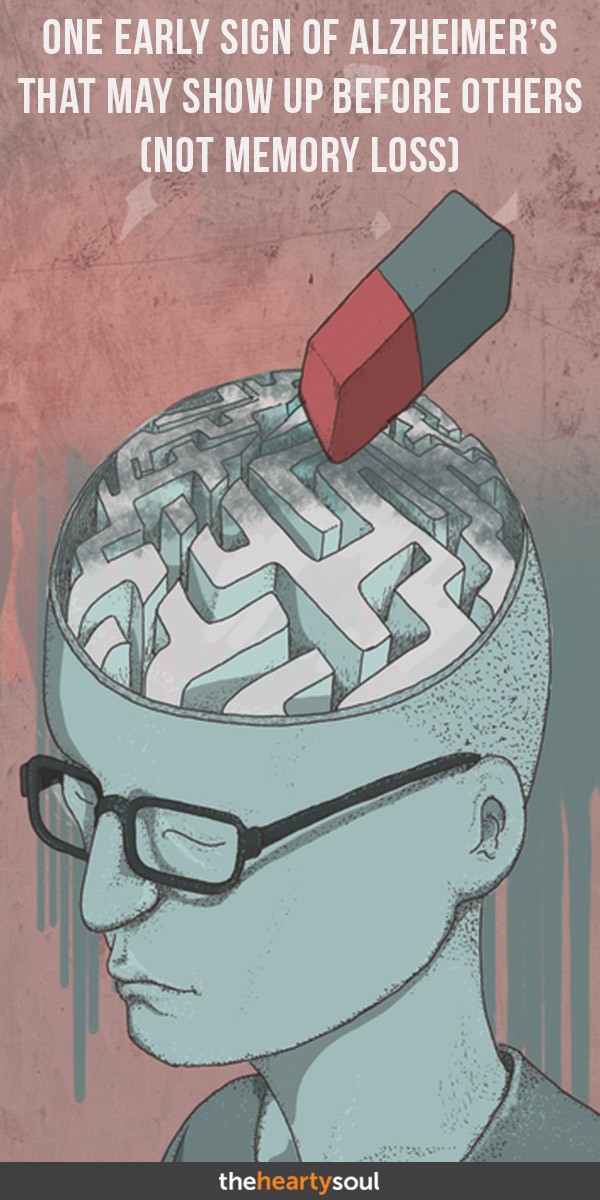When it comes to Alzheimer’s, most people probably assume that one of the first symptoms of this brain disease is memory loss. Although Alzheimer’s and other forms of dementia are typically characterized by a gradual (and sometimes rapid) decline in memory, thinking, and reasoning skills, researchers from Washington University in St. Louis may have found its earliest sign.
In April 2016, the team of researchers published a study in the Journal of Alzheimer’s Disease which found an early sign of Alzheimer’s that we rarely think of first. (And if you’re thinking it’s memory loss, think again!) Instead, they looked at people’s ability to navigate their way through a maze in order to gauge their likelihood of cognitive decline.
There were 71 participants in total who were split into three groups determined by a brain and spinal fluids test which detected biomarkers that can predict future developments of Alzheimer’s disease. [1]
- One group included 42 clinically healthy individuals with no markers for Alzheimer’s
- Another group included 13 individuals with positive biomarkers suggesting preclinical Alzheimer’s
- The last group included 16 individuals who already had early-stage Alzheimer’s
Researchers created a virtual computer maze to gauge all 71 participants’ navigation and orientation skills. They had two hours to go through the maze which included interconnected hallways, four different wallpapers, and 20 landmarks. Everyone was also tested on their ability to learn and follow a pre-set route as well as recreate the route or find specific landmarks. [2]
Which of the Groups was Most Successful?
As you may have suspected, the group of healthy individuals completed tasks with little to no problems, whereas those who already had early-stage Alzheimer’s struggled to complete them successfully.
However, what researchers found surprising was that participants with preclinical Alzheimer’s disease “demonstrated significant difficulties only when they had to form a cognitive map of the environment… [They also] scored lower on their ability to learn the locations of objects in the environment in relation to each other during the initial study phase.” [2]
Researchers are hopeful that their findings help with both current and future Alzheimer’s treatments – and it should. With the emphasis often being placed on memory loss, you can see how easy it is to overlook an early sign of Alzheimer’s such as someone’s seemingly harmless decreased ability to find your way around.
“These findings suggest that navigational tasks designed to assess a cognitive mapping strategy could represent a powerful new tool for detecting the very earliest Alzheimer’s disease-related changes in cognition,” said Denise Head, senior author and associate professor of Psychological and Brain Sciences. [2]
Other Early Warning Signs and Symptoms of Alzheimer’s Disease

When someone received an Alzheimer’s diagnosis, the signs and symptoms will have likely been known for a while. That’s why it’s crucial to be aware of this brain disease’s symptom areas of which there are five: [3]
1) Reduced ability to absorb and remember new information
- Forgetting dates of events or appointments
- Misplacing personal belongings
- Repetitive conversations and questions
2) Impaired ability to reason, perform complex tasks, and exercise judgment
- Reduced ability to manage one’s own money
- Poor understanding of safety risks and ability to make decisions
3) Impaired visuospatial abilities that have nothing to do with sight problems
- Reduced ability to, for example, put on clothes
- Decreased ability to locate and recognize common objects or faces
4) Increasingly unable to speak, read, and write
- Increasing errors in speech and writing
- Trouble thinking of common words mid-conversation
5) Changes in behavior and personality
- Uncharacteristic changes in mood (e.g., agitation, apathy, social withdrawal, lack of motivation)
- Lack of empathy
- Compulsive or obsessive behavior
Why You Should Never Wait to Start Thinking About Your Brain Health

Because Alzheimer’s disease and other dementias creep up and worsen gradually, it can be easy to miss the signs and symptoms. Remember, for the foreseeable future, Alzheimer’s will likely remain an incurable and irreversible disease. However, that does not mean you can’t do everything in your power to prevent it.
Yes – factors such as age, genetics, and the environment in which we live are out of our control. But what we do have at least some control over is our lifestyle! If you’re living with high blood pressure or obesity and eating a highly processed junky diet, your risk of developing Alzheimer’s disease is only increasing. But, if you want reduce your risk of this disease, there are some things you should start doing…
- Get adequate levels of vitamins D and B12 as well as omega-3 fatty acids
- Eat whole foods (especially leafy greens) and eliminate processed ones
- Get consistent and sufficient amounts of sleep every night
- Decrease inflammation
- Increase your physical activity
- Get more social

Sources
- [1] A., L., S., F., M., A., M., & D. (2016, January 01). Spatial Navigation in Preclinical Alzheimer’s Disease. Retrieved from https://content.iospress.com/articles/journal-of-alzheimers-disease/jad150855
- [2] Problems finding your way around may be earliest sign of Alzheimer’s disease, study suggests. (n.d.). Retrieved from https://www.j-alz.com/content/problems-finding-your-way-around-may-be-earliest-sign-alzheimer’s-disease-study-suggests
- [3] MacGill, M. (2018, February 13). Alzheimer’s disease: Symptoms, stages, causes, and treatment. Retrieved from https://www.medicalnewstoday.com/articles/159442.php

